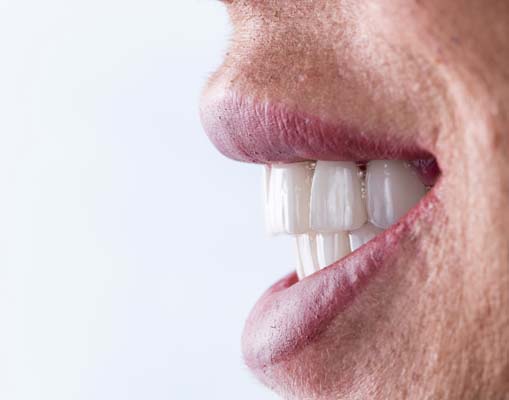Common Questions and Answers About Implant Supported Dentures

Implant-supported dentures are often preferred over their conventional counterparts due to the excellent stability they provide and their bone preserving properties. Unlike traditional dentures, which rest on the wearer’s gums and are held in place via suction, implant-supported dentures are attached to implants that are strategically inserted into the patient’s jaw.
Implants-supported dentures FAQs
Thinking about giving implant-supported dentures a try? Here are answers to some of the questions you might have about these oral prosthetics:
1. What is the process of getting implants like?
Implants are surgically placed into a patient’s jawbone and they are left there to fuse with tissues around them. The process is called osseointegration and it leads to implants being almost as stable as real teeth roots. It can take up to six months for the process of osseointegration to be completed.
2. Are implant dentures better than conventional ones?
Traditional dentures are known to move around when worn. This can lead to sores forming as the rigid structure of the dentures rubs against soft tissues like the cheeks. The poor stability of traditional dentures also makes it more difficult to eat or speak with them. Denture wearers often need a month or more to adjust to the restoration and some people never become comfortable with them.
Implant dentures do not move when worn, leading to an improved experience for the wearer. This leads to a variety of benefits like improved comfort, speech and appearance. Implant dentures also help to prevent the bone tissue loss that is often associated with losing teeth.
3. How are implants installed?
Getting implants requires minor oral surgery. The dentist might need to cut into the patient’s gums to expose the jaw. Holes are then drilled into the jawbone and implants are shoved into the holes until the bone tissues around them hold them in place. Any incisions made are sutured up to complete the installation.
The patient is then given up to six months for the implants to fuse with bone tissues around. Attachments are fitted to the implants and these are used to hold their dentures in place.
4. Who qualifies for implants?
Patients need to be healthy to go through oral surgery. Conditions like immune system disorders and diabetes weaken the immune system. Patients with these types of conditions might have to explore other options. Medications like blood thinners also impact a person’s ability to recover after surgery.
Patients should be willing to give up drinking, smoking or the use of recreational drugs before getting implants. Such habits can slow down the recovery process after surgery.
5. Are implant dentures removable?
Implant-supported dentures can be removable or fixed in place. Many patients prefer the latter since it allows them to get back to how life was before they lost their teeth. The special dentures used do not require any additional care besides good oral hygiene.
We can replace your missing teeth
Call or visit our Aurora clinic to learn more about how implant dentures can be used to replace your missing teeth.
Request an appointment here: https://www.grandviewdentalcolorado.com or call Grandview Dental at (303) 997-0232 for an appointment in our Aurora office.
Check out what others are saying about our dental services on Yelp: Implant Supported Dentures in Aurora, CO.
Recent Posts
Implant supported dentures provide more stability than their traditional counterparts. They are virtually as stable as real teeth because they are attached to implants that have fused with the patient's jawbone. The result is a more comfortable denture set and preserved jawbone tissue.Traditional dentures are the most economical restoration when it comes to replacing missing…
Suffering from a missing tooth? Sadly, having missing teeth is pretty common, whether it be due to decay or injury. After the fact, people are curious about what to do next. General dentists recommend tooth replacement; however, not everyone is keen on this, whether it be due to cost or the time commitment. While it…
Your general dentist will always emphasize the importance of oral health. Read on to learn about how preventive oral hygiene helps maintain good overall health. Many illnesses manifest themselves more visibly through the mouth. As a result, it is crucial to maintain oral health through oral hygiene and prevent dental issues.The following are some preventive…
Many parents often forget the need to get a kid friendly dentist when choosing a dentist for their children. A kid friendly dentist offers additional benefits that are not available from a regular dentist's office. Some might also get confused when they encounter pediatric dentists and wonder if there is any difference. Pediatric dentists also…


